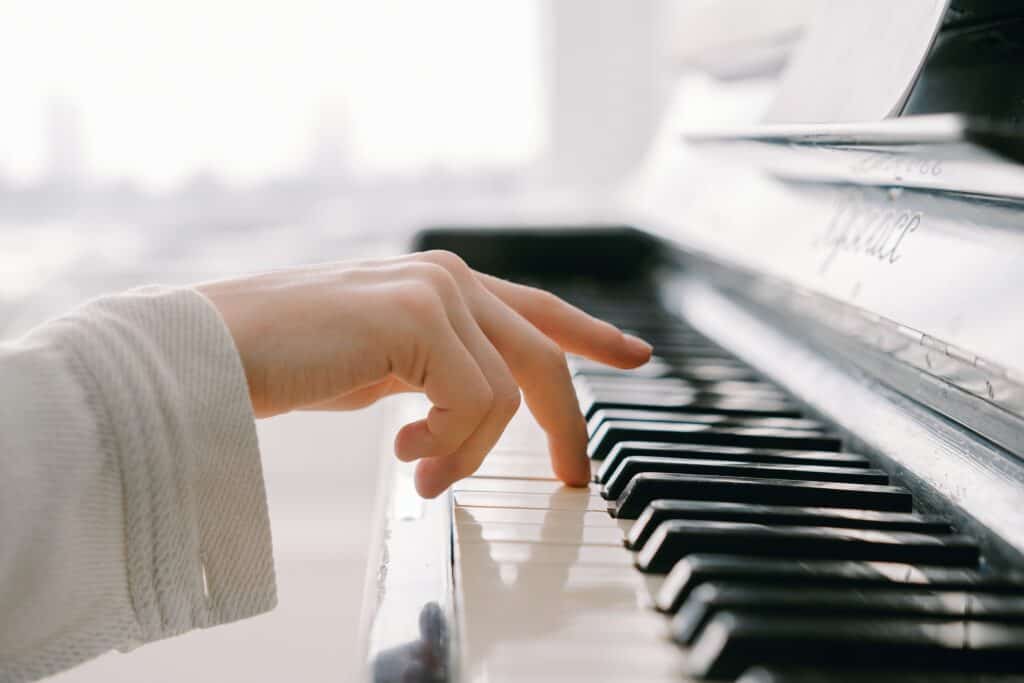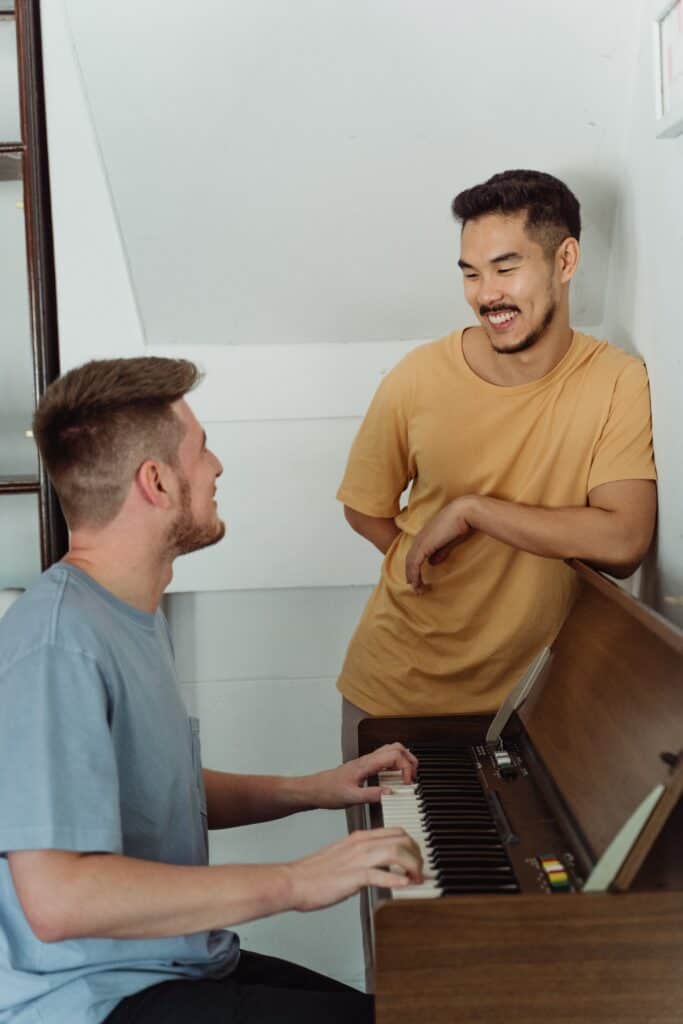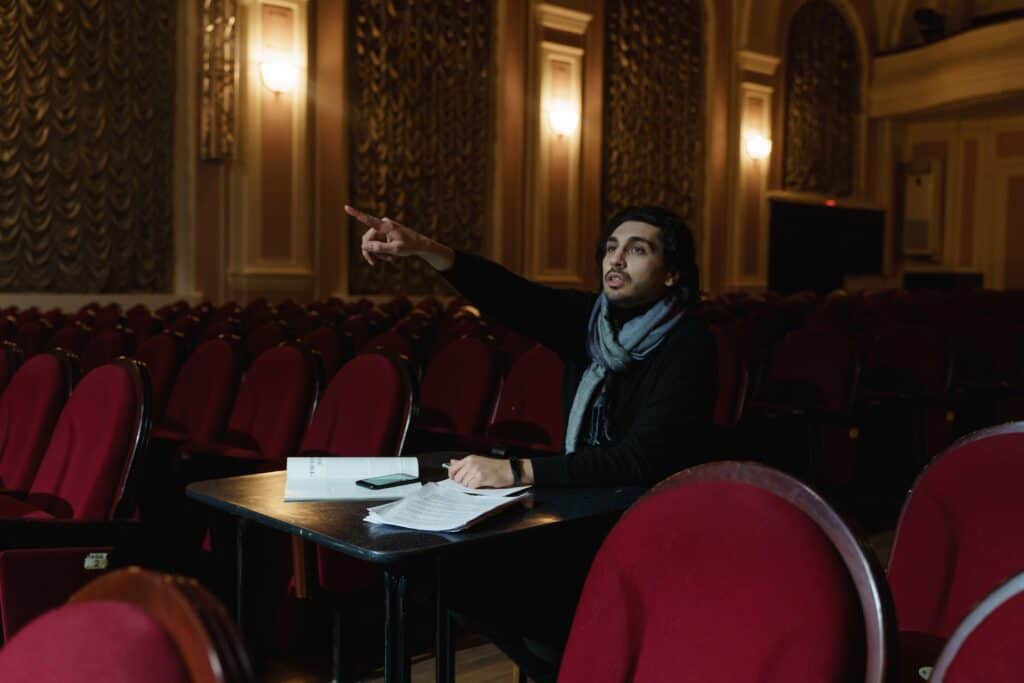by Jim DeStefano

The Music Audition:
The audition is a vital part of many admissions decisions. How you look on paper may have gotten you through the door, but how you perform in your audition can very well make the difference in your acceptance to the music school or conservatory of your dreams. Be that as it may, the point of this blog is to steady those nerves and help guide you through the audition process. This is an exciting time after all.
Up first: The Recorded Audition.
Due to several universities having Covid restrictions, the recorded audition has become a go-to option for many undergrads trying to ensure they meet application requirements. Please ensure that if you decide to pursue the recorded audition you read the requirements that each music school or conservatory has set out for such an endeavor.
This is just small excerpt from the Penn State College of Music, to showcase the importance of looking for the fine print when trying to submit a recorded application:
“To submit a recorded audition, please follow these steps:
Complete and submit the online scheduling form. Under “Audition Dates,” click “other.” In the adjacent box, type in “recorded audition.”
Follow the audition requirements for your instrument as listed.
Clearly label the recording with your name, Penn State ID #(if applicable), instrument, repertoire titles/composers, address, phone number, and email address. This information may be listed on the case or enclosed on a separate sheet of paper.
Your recording should arrive no later than one week before the last audition day. Please send it to the address below. You will be notified when the recording has been received.”
Penn State University
You can see there several steps, things need to be properly labeled, and there are additional links and forms that must be filled out. Explore every avenue before pressing submit. Be sure that this is the best option for you, as even the Penn State website clearly states, “It is always preferable to audition in person. This gives the faculty members an opportunity to meet and work with potential students.” So be sure this is the right decision for you, and that you put out the best content possible.
Up next: The Collaborative Pianist.
This is tricky one, as it really depends on the school. For example, Carnegie Mellon has put this except on their audition’s guideline page.

“Instrumental auditions are unaccompanied. Vocalists are welcome to work with a collaborative pianist for their audition, however we understand this is very challenging due to COVID-19 safety measures. Please do not use an accompanist if it is not safe to do so!”
Carnegie Mellon University
This means that most schools are going to have their own guidelines as to whether the piano accompaniment is mandatory or will be provided for you. In the case it’s provided for you, please be advised that most schools do not provide sheet music, you must bring your pianist his or her own copy. These are things that should be made available on the individual school of your choice’s website.
For your consideration: Sight Reading, Scales, and Entrance Exams
The good news for those considering a recorded audition is that many schools do NOT require sight reading with that submission.
However, in many in-person audition settings there could be sight reading and scales, as well as a written exam that goes along with the audition process. It’s best to not worry about this unless you have to, and the best way to properly prep yourself would be to check the website of the school you’re interested in applying to.
Again, from the Penn State University website,
“A written music theory exam, administered on the audition day, is also a valuable portion of the audition process. In addition, students are evaluated during the audition for a possible music merit scholarship.”
Penn State University
This is another example of knowing the school you are auditioning for ahead of time, and allowing yourself ample time to prepare yourself.
Second to Last: Plan your recording ahead of time!
The second to last thing we want to mention has to do with planning out your recording ahead of time, so that you know all the ins and outs of the venue and the supplies you’ll need.
If you are recording somewhere outside of your home, plan to get there early so that you have ample time to adapt and react to the others who may also be using this location. In other words, get there early and prepare for anything. The best tip is to make a list ahead of time so that you can be aware of all supplies, technology, and props that you may need. It’s best to have this checklist handy day of audition. This way you ensure you have everything you’ll need.
A few things to consider:
- If you are recording at home, keep the microphone close to you so that it records direct sound. You give the microphone less chance to pick up ambient noise this way.
- If you are recording in a concert hall, venue, or studio, find the place with the best acoustics and place your microphone there. The camera can be placed closer, but you want the best sound coming from the microphone to take full advantage of the location you’ve chosen.
- Do a trial run! I know, it sounds self-explanatory, but this is a vital part of the checklist. Record a minute of audio, covering the loudest and softest parts of the piece. Listen back to make sure the sound is perfect or adjust your levels accordingly if the recording is subpar.
- Stage presence matters! We’ve spoken to several admission counselors, and your posture and body movement/mechanics matter to them. If you record, keep the camera at a distance where your body is visible and not just your face. Every little advantage matters.
- Lastly, HYDRATE. Keep a bottle of water handy, not just for your voice, but to stay alert and hydrated. It’s more important than you think.
Lastly: The Admissions Interview
One of the things we’ve found is that our musicians dislike speaking about themselves. Many would prefer to play, or sing, or simply allow their talent to speak for itself. However, in another attempt to distinguish their applicants, many schools require an interview of some kind during this process. Here are some things to consider when preparing for this.
- Find out if your school has Covid protocols in place. This could mean faculty or staff will be contacting you for a Zoom meet and greet, instead of an in-person interview. Make sure you all the appropriate technology and apps downloaded to make this process go smoothly.
- The questions you are asked can range from informal to formal, and usually are meant to allow the staff to learn about you. Questions like, “why did you choose this piece of music to perform?”, or “Why did you write about ___ in your admissions essay?”, could be asked. Be sure to remain confident, regardless of your answers, as that will go a long way with the interviewer(s).
- If you are recording your audition, and are playing an instrument, it’s beneficial to introduce yourself and your repertoire ahead of the audition. This could act as your interview and will be beneficial in allowing those who will view your video to learn more about you and your music.
- Vocalists do not HAVE to do this, although in either case it’s best to check your school’s application guidelines before recording.

The wrap up:
The audition should be fun. The audition is your chance to show your skillset, your passion, your talent, and who you are as a musician. However, this is just the first step in your musical journey. What comes next is the music education you will receive at your university, college, or conservatory of your choice. Treat your audition as an extension of that musical journey and try to enjoy the moment.
As always, if you have any questions, feel free to fill out our contact form below!
Contact Us:
Did you find this blog helpful? Do you picture yourself in a music career? If the answer to that is a “yes”, your next step is simple. Contact insidemusicschools.com and allow our team of industry insiders to guide you toward your goal of being a professional in the music industry. Through expert counseling and real world experience, we will make sure you are prepared for the journey
Founder & President at Inside Music Schools | Insidemusicschools.com
Head of admissions and faculty member at Berklee College of Music for 40 years, Steve Lipman and our team at Inside Music Schools speak music as their primary language. We approach each client contact with open eyes, ears, and minds. As the country’s premier music school consultant, he has advised students from the United States, Canada, the U.K., India, Singapore, Dubai, China, Australia, Turkey, Colombia, Argentina, Brazil, Japan, Israel, Italy, Russia and elsewhere.
